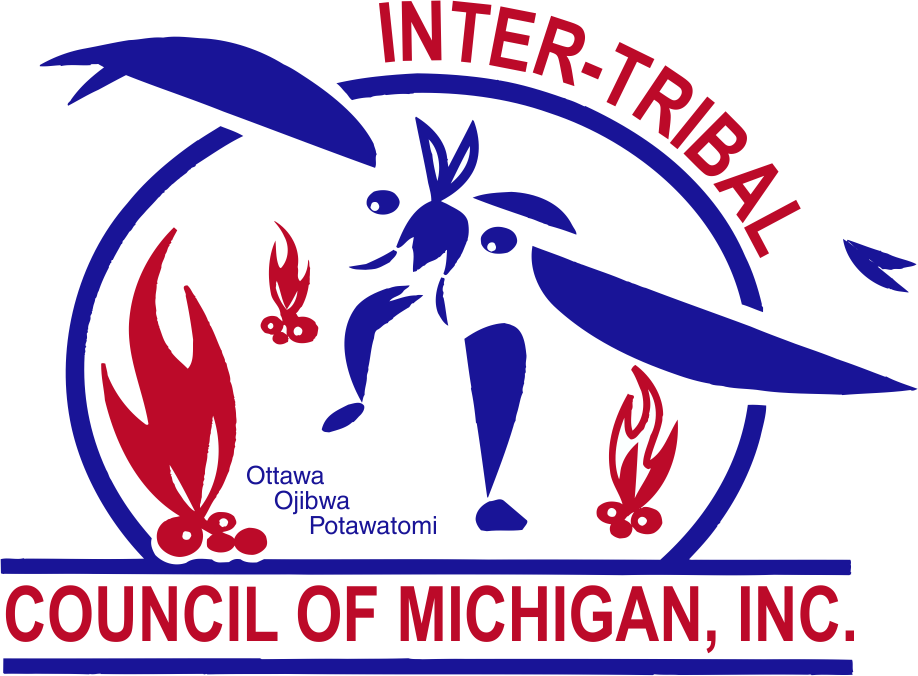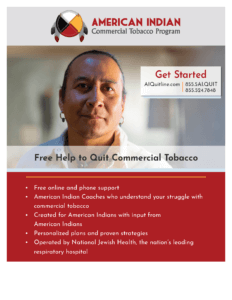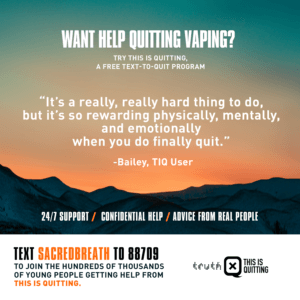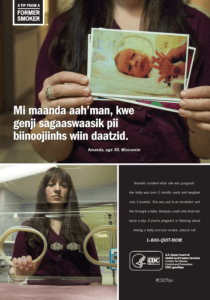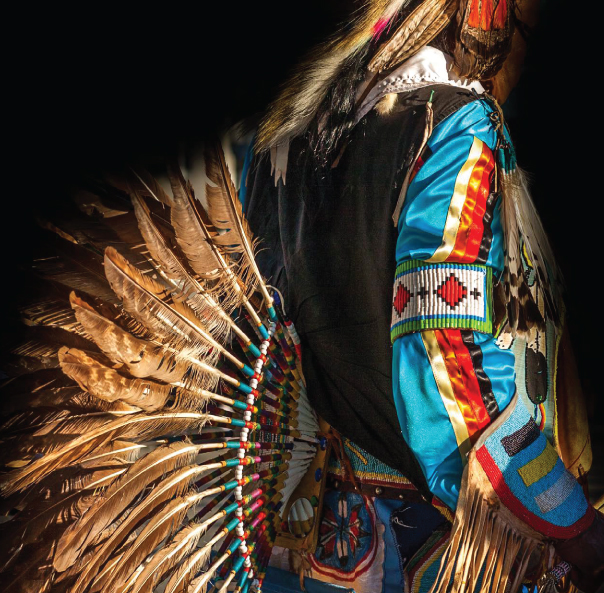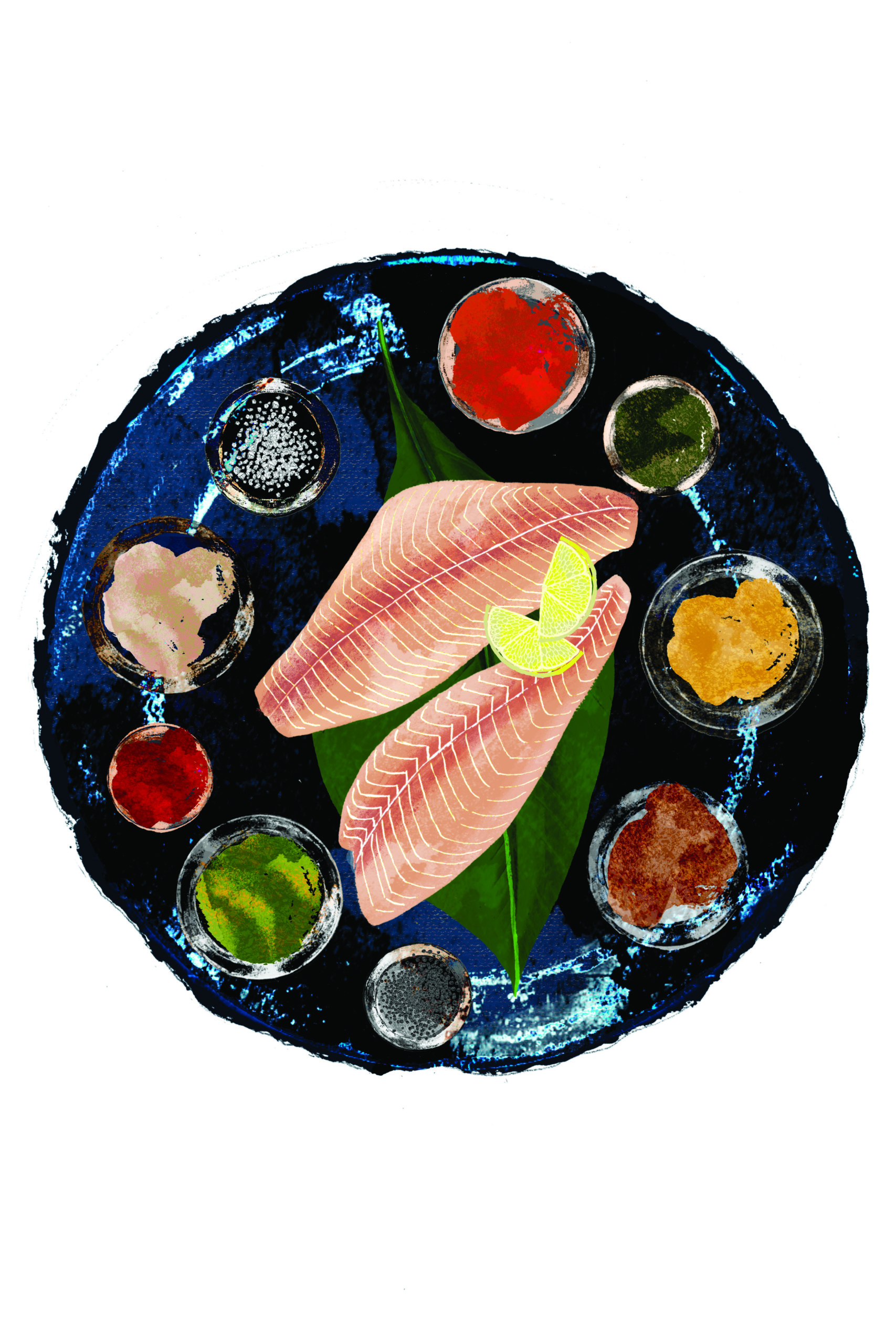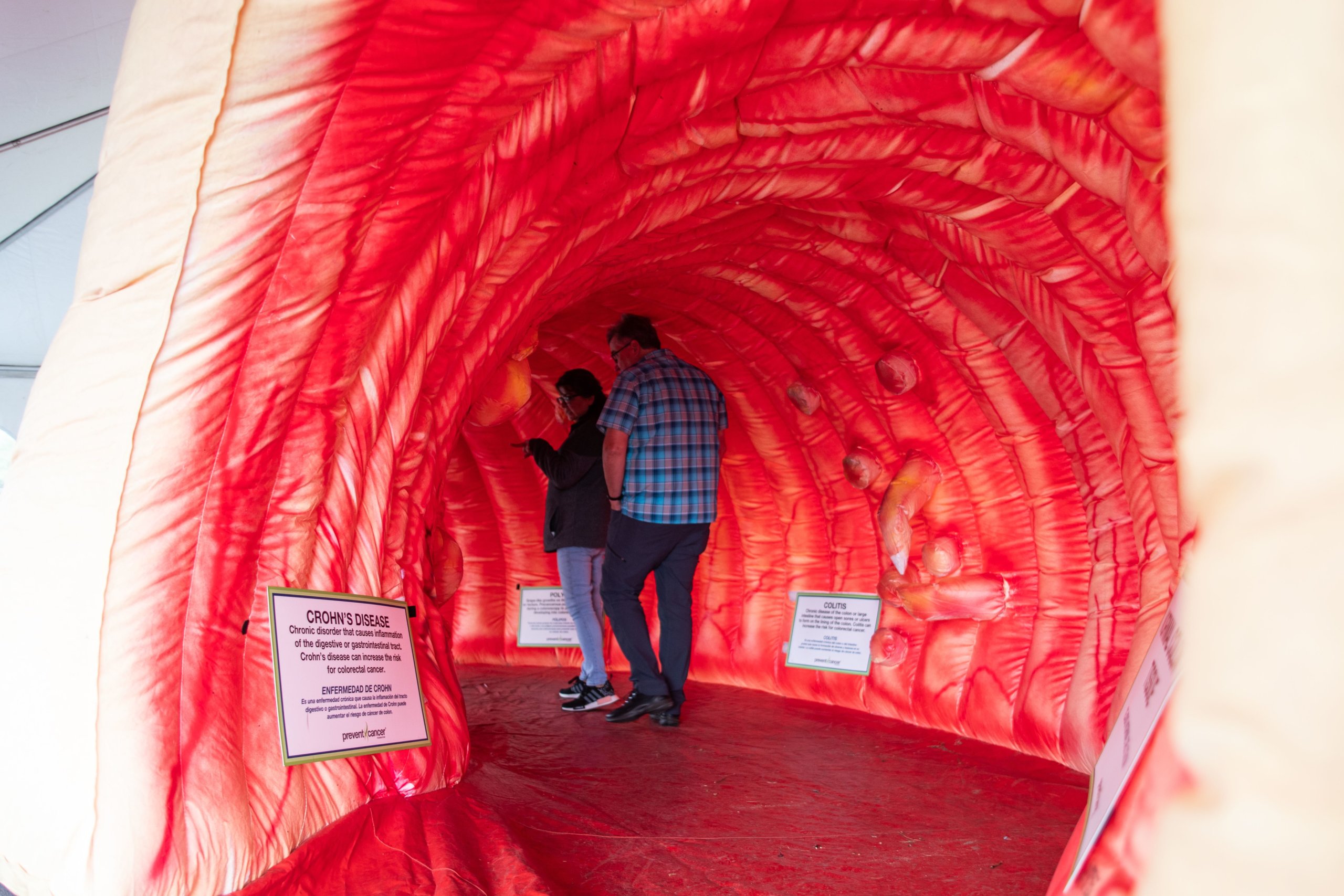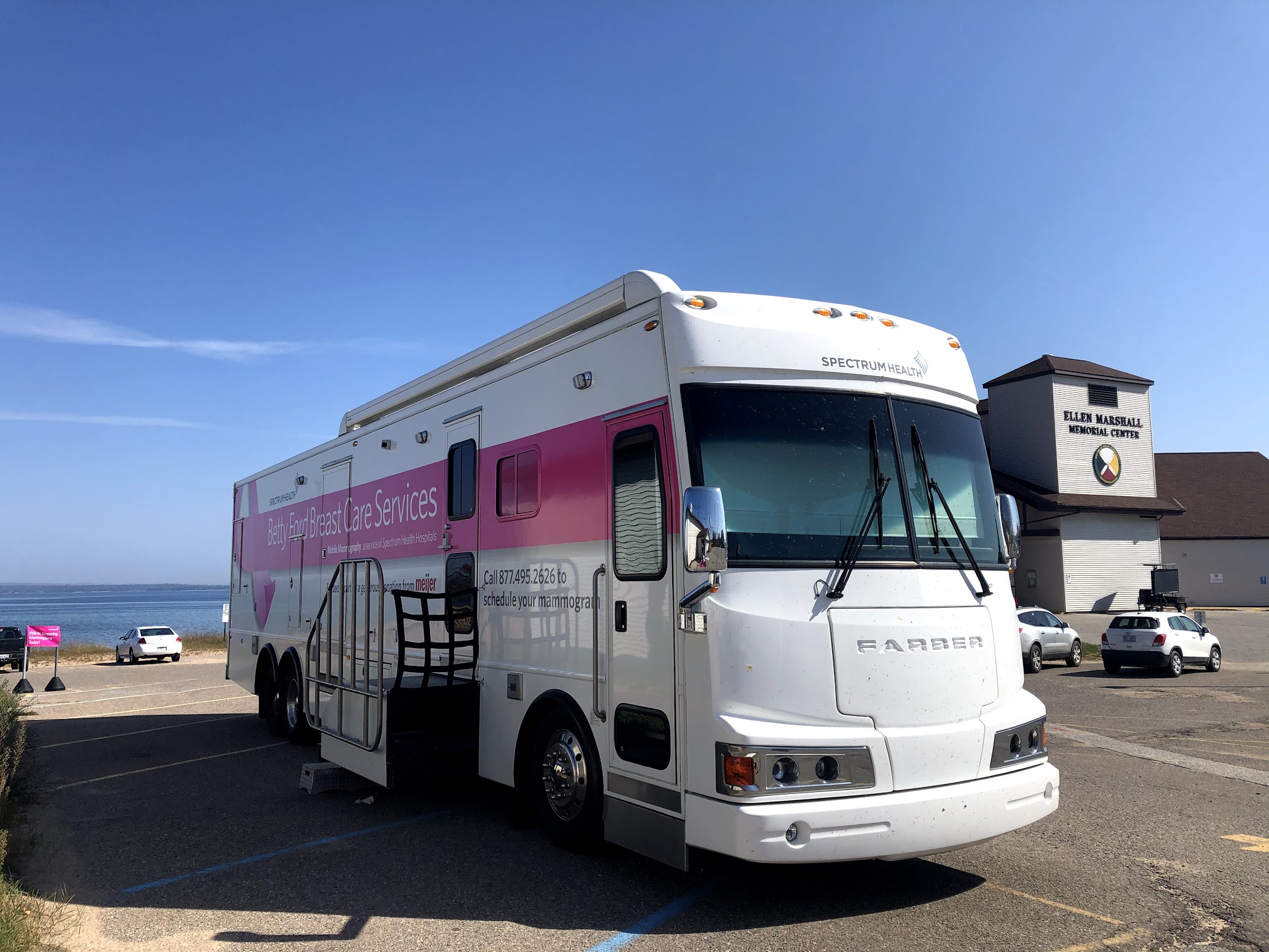The Inter-Tribal Council of Michigan supports Michigan tribal communities in reducing structural barriers to breast...
Read MoreCategory: Health Ed Programs
Health Ed Programs
Text SACREDBREATH to 88709

EX Program is here with you every step of your quitting journey – whether you’re curious about quitting someday in the future or need extra tools to maintain the progress you’ve already made.
It’s developed with experts and informed by millions of experienced quitters. You’ll get science-backed, 24/7 support — all for free.
What You Get With EX Program
Support from experts and Experienced Quitters
- Access to expert advice and tips. You’ll get a full collection of our best, judgement-free advice from the professionals at EX Program, Mayo Clinic, and other quitters. Plus, our live events make it easy to meet experts and get answers to your quitting questions.
- Connect with other quitters in the EX Community. The EX Community is the longest-running and largest online community for people quitting smoking, vaping, nicotine pouches, and tobacco. Find support, get accountability, and celebrate your wins with people who get what you’re getting through.
- Daily reminders to help guide you on your journey. You’ll get text messages with advice from experts and quitters in all phases of their quit journey. Messages adapt to your needs and experiences, whether you’re curious about quitting, actively trying to quit right now, or wanting to maintain the progress you’ve already made.
Personal Tools and Tracking
- Online exercises and tools. Interactive tools help you unlock your reasons for quitting, identify triggers, learn new ways to manage nicotine cravings, and more.
- Regular, virtual check-ins and progress tracking for personal accountability can help keep you on track with your goals.
- Personalized recommendations. EX Scout finds 6 ideas for you to read and do every week, tailored to you and your unique quit journey.
Sign up below!
Want support quitting nicotine?
Join EX Program
Thanks for joining!
Keep an eye out for a text from 88709
You'll receive daily texts full of tips, advice, and support from experts and quitters like you. Enter your mobile number to get started for free. By clicking JOIN, you agree to receive emails and texts from EX Program and agree to the Terms and Conditions. text STOP to opt out. No purchase is necessary. Msg&Data Rates May Apply.
Connection failure, please try again.
Health Ed Programs
HOPE Project Growing Garden Resources
Maamwi Gda’ mnobmaadizi’ mi – “Let us gather for a good way of life”
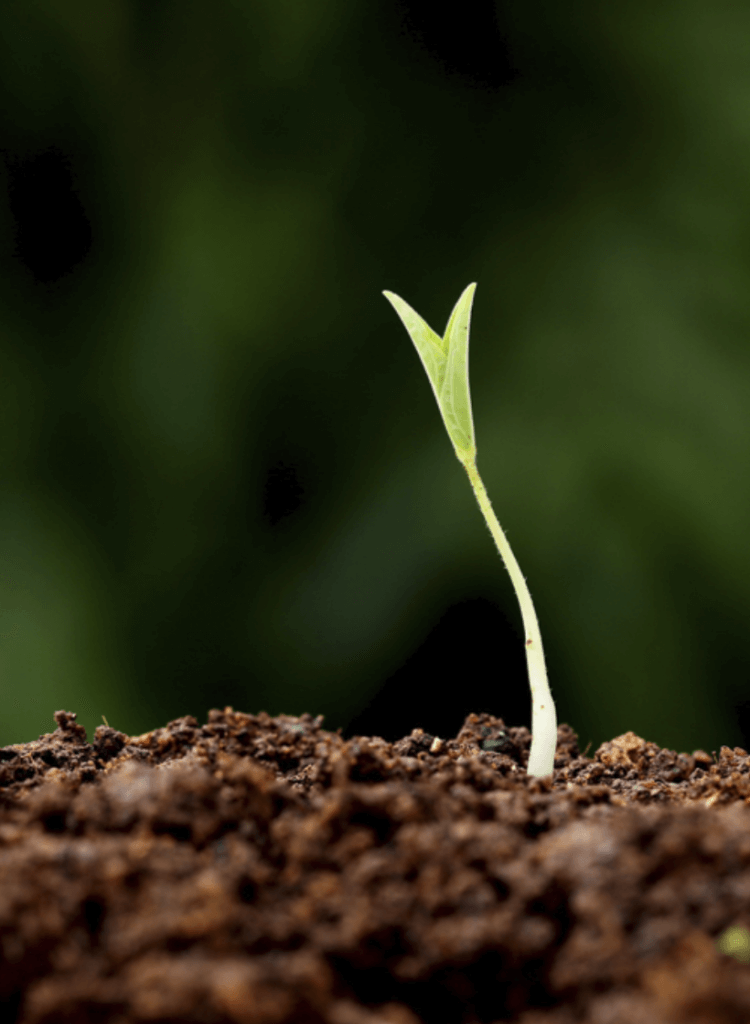
Session Recordings
Other Resources
- Traditional Tobacco – Keep It Sacred
- Good Medicine Keepers
- American Indian Cancer Foundation
- Great Lakes Inter-Tribal Epidemiology Center | Tribal Epidemiology Centers
- “Calling the Spirt Back:” Spiritual Needs Among Great Plains American Indians – Journal of Pain and Symptom Management
- Cancer Journey for American Indians and Alaska Natives in the Pacific Northwest.pdf
- How Increased Funding Can Advance the Mission of the Indian Health Service to Improve Health Outcomes for American Indians and Alaska Natives.pdf
Health Ed Programs
REACH Journey to Wellness
Racial Ethnic Approaches to Community Health (REACH)
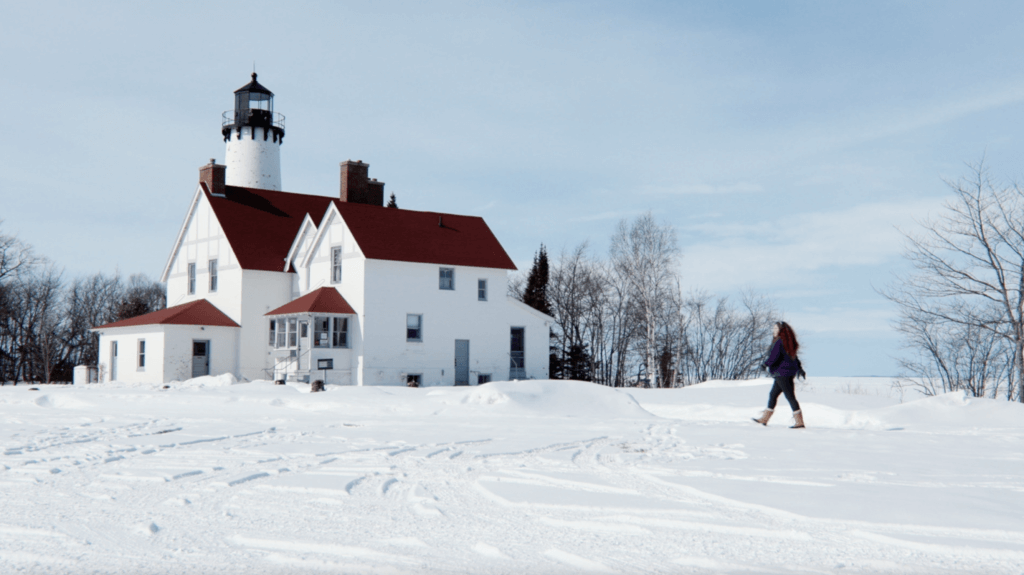
About REACH
The REACH Journey to Wellness program aims to improve health, prevent chronic disease, and reduce health disparities among Michigan’s American Indians through programs addressing nutrition, physical activity, commercial tobacco and adult immunizations. REACH tribal partners will address these disparities through policy, system, and environmental change strategies.
Five tribes have partnered on this project:
Bay Mills Indian Community
Hannahville Indian Community
Nottawaseppi Huron Band of Potawatomi
Pokagon Band of Potawatomi Indians
Saginaw Chippewa Indian Tribe
Physical Activity Resources
Community Design Connecting Activity-Friendly Routes
Trail Finders
Tobacco
Commercial Tobacco Cessation Resources
Coalition
Details and resources to come!
Updates and Reports
REACH Year 1 Highlights
Healthy Native People Coalition Organizational Chart
Health Ed Programs
Menthol and Other Flavored Tobacco Products

About
The high prevalence of menthol and flavored tobacco use in American Indian and Alaska Native (AI/AN) communities poses a significant threat to public health. Predatory marketing strategies by big tobacco companies on AI/AN communities has amplified initiation and addiction rates, further worsening health disparities. Menthol and flavored tobacco has been recognized as a catalyst for smoking initiation and addiction, posing an additional hurdle to quitting efforts. AI/AN communities encounter distinct challenges linked to the use of menthol and other flavored tobacco products, with the youth being particularly vulnerable to heightened risks. In a recent survey, 19.9% of youth in grades 8 report using vaping products at least once in their lifetime and 38.8% of 12th graders report having used vaping products. 1 Additionally,77% of youth surveyed in grades 8-10 did not perceive the use of vaping products as increasing their risk of developing cancer and other illnesses and nearly half of all respondents indicated that it was fairly easy for them to obtain vape products.1
The harmful effects of menthol and flavored tobacco products extend beyond individual health, impacting community well-being and exacerbating existing disparities. It is imperative to address these issues comprehensively, emphasizing education, awareness, access to cessation services, culturally tailored interventions and effective policy initiatives to curb the prevalence of menthol and flavored tobacco use in AI/AN communities.
Stanley, S. J., Kelley, D. E., O’Brien, E., Margolis, K. A., Navarro, M. A., Alexander, J. P., & O’Donnell, A. N. (2022). US digital tobacco marketing and youth: A narrative review. Preventive Medicine Reports, 102094.
EX Program
EX Program is the go-to guide on your quitting journey.
EX Program is here with you every step of your quitting journey – whether you’re curious about quitting someday in the future or need extra tools to maintain the progress you’ve already made.
It’s developed with experts and informed by millions of experienced quitters. You’ll get science-backed, 24/7 support – all for free.
What you get with EX Program
Support From Experts and Experienced Quitters
- Access to expert advice and tips. You’ll get a full collection of our best, judgment-free advice from the professionals at EX Program, Mayo Clinic and other quitters. Plus, our live events make it easy to meet experts and get answers to your quitting questions.
- Connect with other quitters in the EX Community. The EX Community is the longest-running and largest online community for people quitting smoking, vaping, nicotine pouches, and tobacco. Find support, get accountability, and celebrate your wins with people who get what you’re going through.
- Daily reminders to help guide you on your journey. You’ll get text messages with advice from experts and quitters in all phases of their quit journey. Messages adapt to your needs and experiences, whether you’re curious about quitting, actively trying to quit right now, or wanting to maintain the progress you’ve already made.
Personal Tools and Tracking
- Online exercises and tools. Interactive tools help you unlock your reasons for quitting, identify triggers, learn new ways to manage nicotine cravings, and more.
- Regular, virtual check-ins and progress tracking for personal accountability can help keep you on track with your goals.
- Personalized recommendations. EX Scout finds 6 ideas for you to read and do every week, tailored to you and your unique quit journey.
Want support quitting nicotine?
Join EX Program
Thanks for joining!
Keep an eye out for a text from 88709
You'll receive daily texts full of tips, advice, and support from experts and quitters like you. Enter your mobile number to get started for free. By clicking JOIN, you agree to receive emails and texts from EX Program and agree to the Terms and Conditions. text STOP to opt out. No purchase is necessary. Msg&Data Rates May Apply.
Connection failure, please try again.
Resources
Health Ed Programs
Gigiigoo'inann Study
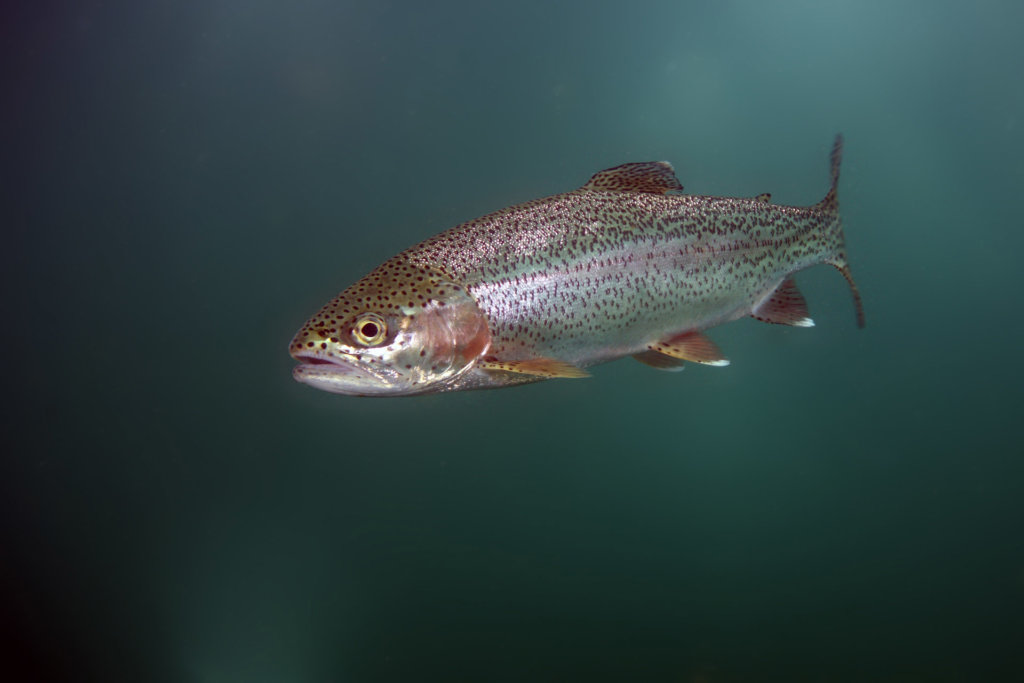
Fish hold great cultural significance for the Anishinaabe, and their cherished fishing traditions face environmental threats. The Gigiigoo’inaan App is significant because it provides users safe fish consumption advices as well as healthy and easy fish recipes. This app has gathered positive feedback, with Anishinaabe fish consumers reporting increased confidence, higher fish consumption, and improved understanding of environmental health.
Join us in preserving fishing traditions and make informed fish-eating choices. Download the Gigiigoo’inaan App today!
Apple/iPhone: https://apps.apple.com/us/app/mcwgiigooapp/id1447081687?Is=1
Android/Google Play: https://play.google.com/store/apps/details?id=com.shorewoodtech.GigiigooApp&hl=en
Articles
Download Fliers
App Preview Screenshots

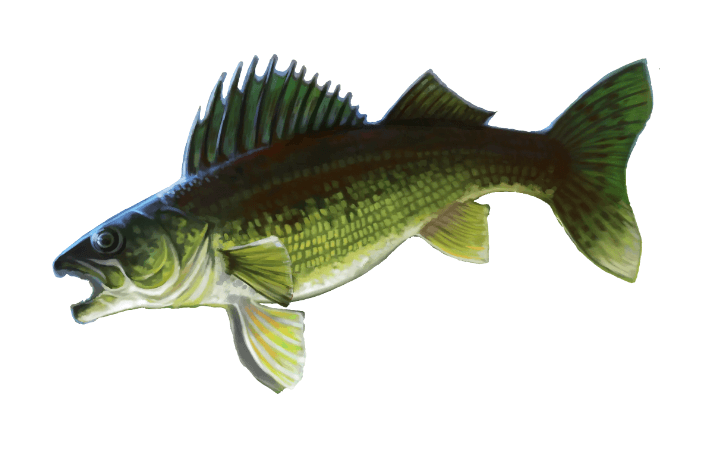
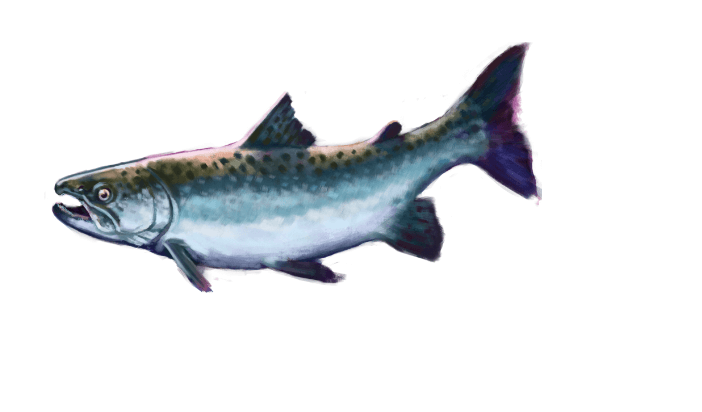
Health Ed Programs
Three Fires Comprehensive Cancer Consortium
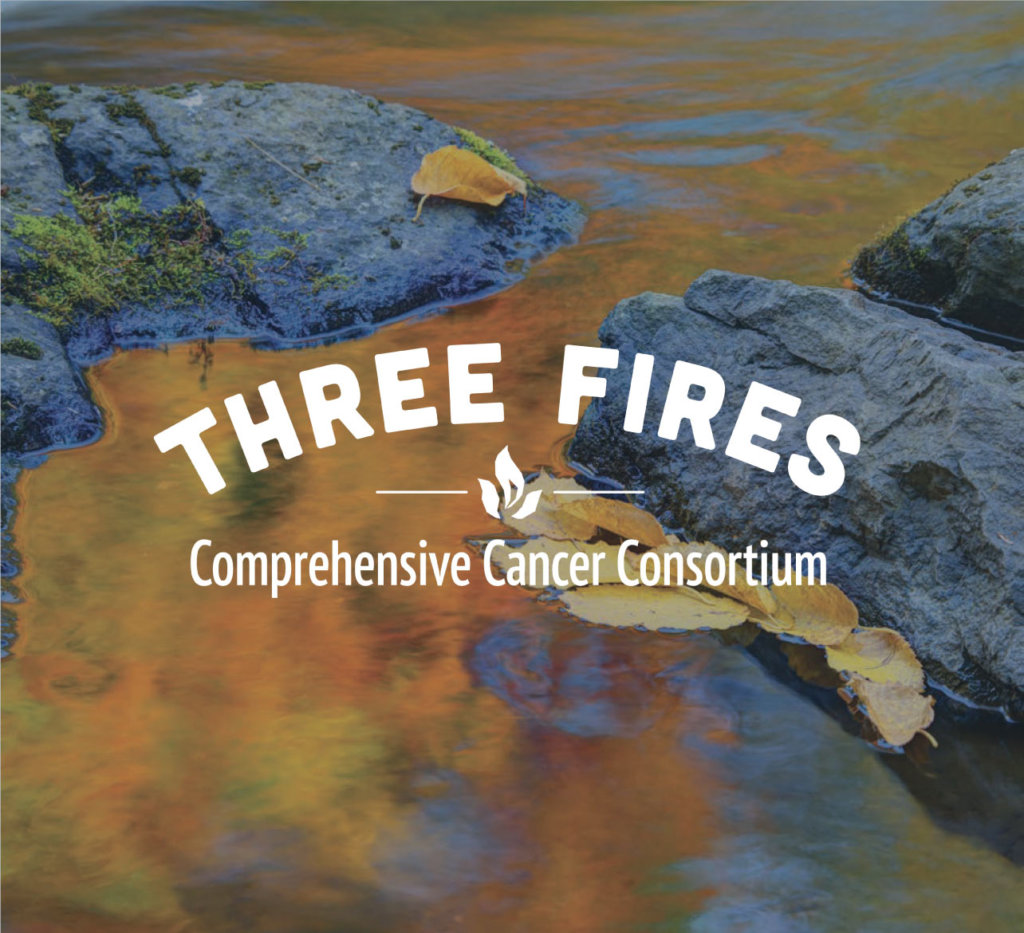
The Inter-Tribal Council of Michigan’s National Comprehensive Cancer Control Program aims to decrease colon, breast and lung cancer, improve quality of life among cancer survivors and decrease cancer morbidity and mortality for Michigan’s American Indians.
The Three Fires Cancer Consortium, addresses cancer-related health disparities among Michigan’s American Indian populations through the use of policy, systems and environmental change strategies.
Five tribes are participating in this consortium:
- Bay Mills Indian Community
- Hannahville Indian Community
- Keweenaw Bay Indian Community
- Little Traverse Bay Bands of Odawa Indians
- Sault Ste. Marie Tribe of Chippewa Indians
Programs
Cancer Survivorship Resources
Cancer Survivorship Resources Resources Cancer Journey Resource Guide Designed by the Three Fires Cancer Consortium...
Read MoreBehavioral Risk Factor Surveillance System
The NaBRFS is one of the only sources of state-specific, population-based estimates of the prevalence...
Read MoreCommercial and Traditional Tobacco
Tobacco is a sacred medicine among many Native American cultures used for ceremony. Learn more...
Read MoreHealth Ed Programs
Breast Cancer & Cervical Cancer Control (BC3NP)
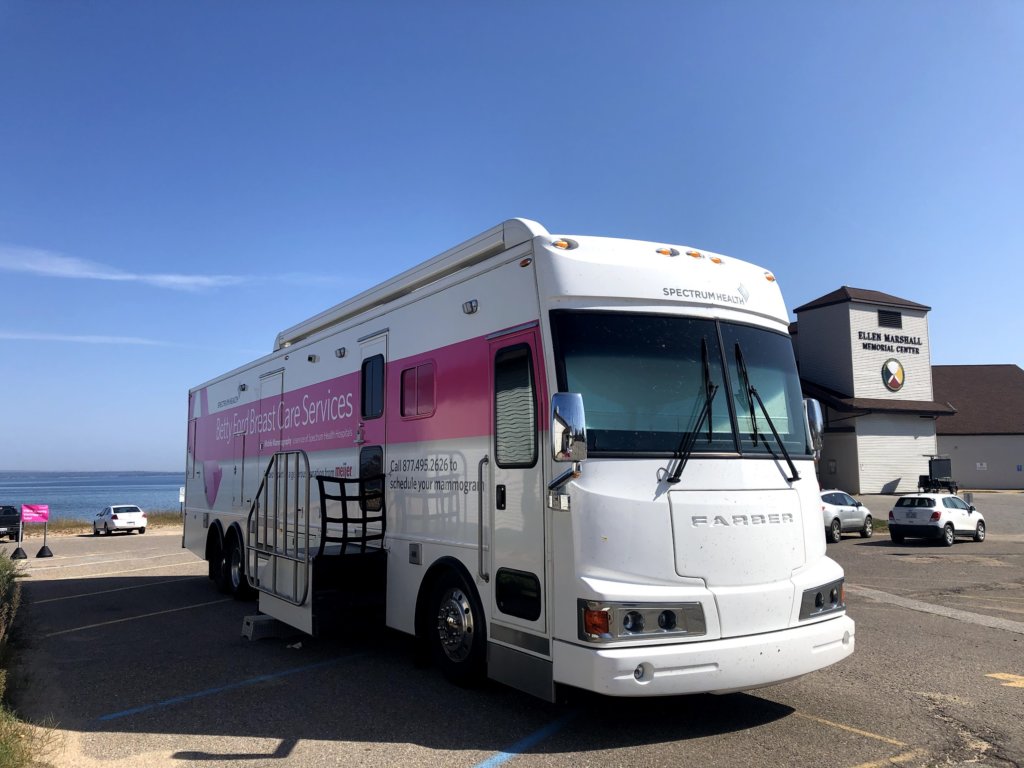
Kwe Brave
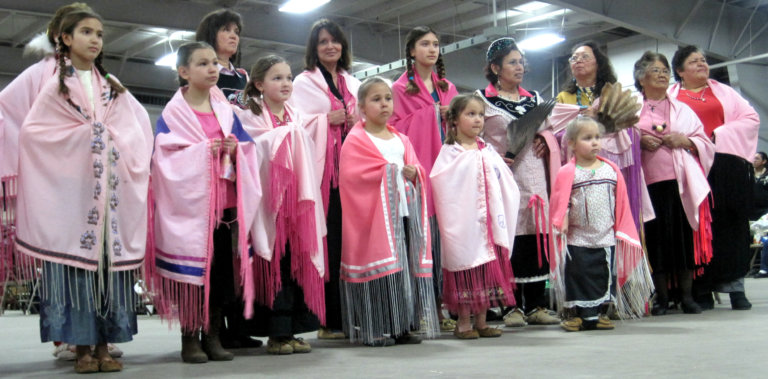
Kwe Brave resource page for Native American breast cancer survivors and caregivers. Kwe is the Ojibwe word for women and aims to honor our sisters that face cancer diagnosis.
Cancer Control Resources
Health Ed Programs
Nutrition and Food Access
Nutrition-related chronic disease (diabetes, cancer, and heart disease) impacts many and can be prevented through living a healthy lifestyle including physical activity and proper nutrition. In an ever-changing world with a complicated food supply, nutritional knowledge is more important than ever to support healthy behavior change. The ITCM has initiated this compendium of culturally appropriate materials to increase both the knowledge and the consumption of healthy traditional foods to prevent disease and to achieve improved health.
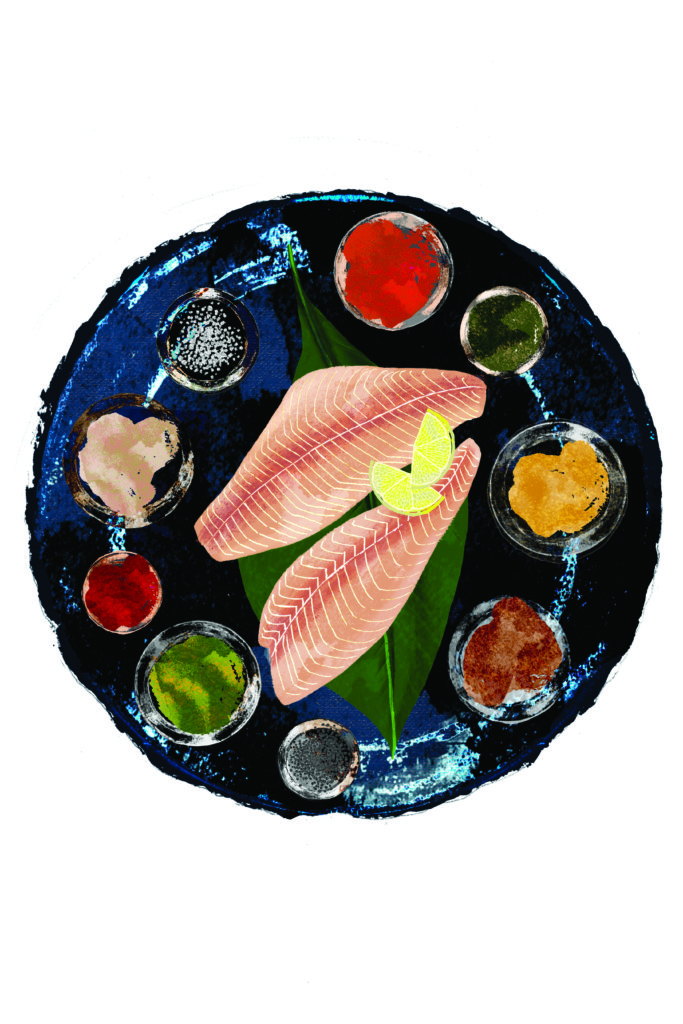
Resources
The USDA Food Distribution Programs on Indian Reservations (FDPIR) provides food to income-eligible Native American families. Below is a list of FDPIR locations in Michigan.
Little River Band of Ottawa Indians
2608 Government Center Drive
Manistee, MI 49660
Ken LaHaye, Director of Food Distribution
231-398-6715
kenlahaye@lrboi-nsn.gov
Little Traverse Bay Band of Odawa Indians
824 Charlevoix Avenue
Petoskey, MI 49770
Joe VanAlstine, FDPIR Program Specialist
231-242-1620
jvanalstine@ltbbodawa-nsn.gov
Pokagon Band of Potawatomi Indians
58620 Sink Road
Dowagiac, MI 49047
David Halquist, Jr., FDPIR Supervisor
888-281-1111
david.halquist.jr@pokagonband-nsn.gov
Bay Mills Indian Community
12497 W. Lakeshore Drive
Brimley, MI 49715
Kristine Schwiderson, FDPIR Director
906-248-2528
kschwiderson@baymills.org
Sault Sainte Marie Tribe of Chippewa Indians
3601 S. Mackinac Trail
Sault Sainte Marie, MI 49783
Tony Nertoli, FDPIR Director
906-635-6076
anertoli@saulttribe.net
Keweenaw Bay Indian Community
16613 Skanee Road
L’Anse, MI 49946
Darren Webb, FDPIR Director
906-524-7340
dwebb@kbic-nsn.gov
- MSU Extension and tribal partners highlight Indigenous foods through Cooking Matters program
- Food Sovereignty: Clancy Harrison on Topic of Food Insecurity
- Cookbooks
- The Sioux Chef Mission is committed to revitalizing Native American cuisine and reclaiming an important culinary culture long buried and often inaccessible.
- Eating with the Seasons – Anishinaabeg Great Lakes Region – Derek Nicholas
Anishinaabek Cooking Videos
Anishinaabek Cooking Videos
Health Ed Programs
Cancer Prevention & Control Programs
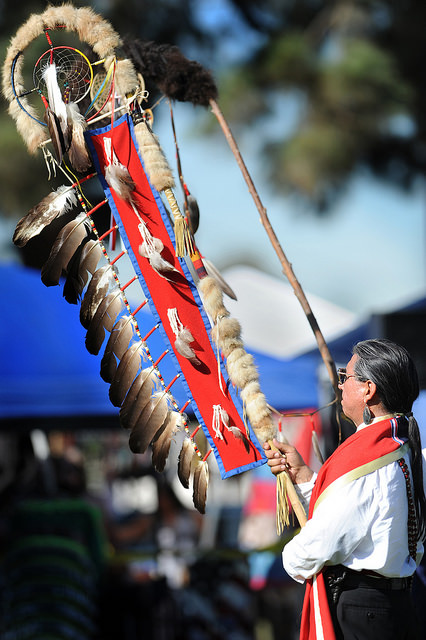
Programs
Food Farmacy
Nutrition-related chronic disease (diabetes, cancer, and heart disease) impacts many and can be prevented through...
Read MoreColorectal Cancer Screening
Colorectal Cancer Awareness Inter-Tribal Council of Michigan, Inc. InstitutionalColorectal Cancer Awareness SAULT STE. MARIE —...
Read MoreBreast and Cervical Cancer Control (BC3NP)
The Inter-Tribal Council of Michigan supports Michigan tribal communities in reducing structural barriers to breast...
Read MoreNutrition and Food Access
Nutrition-related chronic disease (diabetes, cancer, and heart disease) impacts many and can be prevented through...
Read More